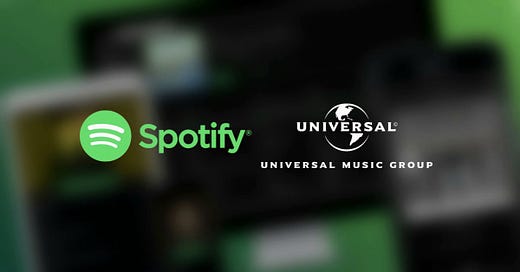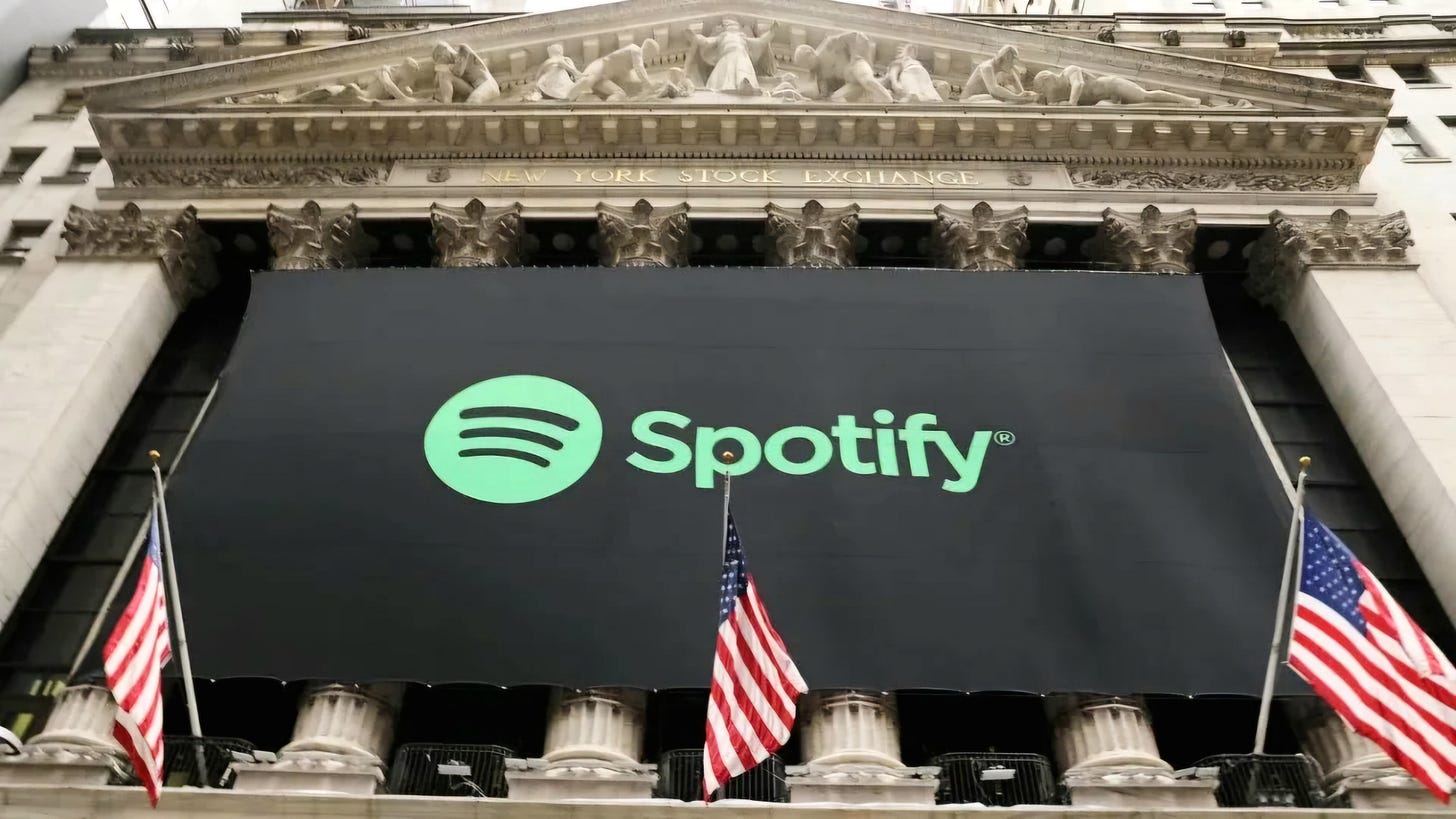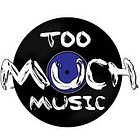The Great Spotify-Universal Reset | How a $100M Royalty Battle Changes Everything for Musicians
A deep dive into 2025's most consequential music industry deal
Here's a story about how adding audiobooks to Spotify nearly broke the music industry's payment model and how the biggest record label in the world just forced a fix that could re-shape streaming forever (At least for Universal Artists.)
In late January 2025, Universal Music Group and Spotify announced what seemed like another routine licensing deal. But buried in the details was a $100 million bombshell that could finally tip the scales back toward artists in the eternal battle over streaming economics.
The Audiobook Loophole That Started It All
Picture this; It's 2022, and Spotify executives have just discovered a golden opportunity in the fine print of U.S. copyright law. By adding just 15 hours of audiobooks to their Premium subscription, they could legally slash songwriter royalties from 15.1% to 12.3% and saving an estimated $100 million in 2024 alone.
The logic? A decades-old rule called Phonorecords IV that lets streaming services pay lower rates for "bundled" content. Add some audiobooks to your music service, and suddenly you're a "bundle" eligible for discounts.
For Spotify, it was brilliant accounting. For songwriters watching their already-thin royalty checks shrink further? Not so much…
"This Stops Now": Universal's Power Play
Enter Lucian Grainge, Universal Music Group's CEO, wielding the most powerful catalog in music (think Taylor Swift, Drake, The Beatles). His message to Spotify was clear: Fix this, or risk losing it all.
The result? A ground-breaking "direct agreement" that:
Eliminates the bundle discount for Universal's songwriters
Creates separate economic treatment for music vs. non-music content
Arrives a full year before their existing deal expired
But here's what makes this truly fascinating:
It's not just about fixing a royalty loophole. It's about fundamentally re-defining how streaming services value music (even if this only applies to the Universal Music Catalogue.)
The Birth of "Streaming 2.0"?
This deal is actually part of Universal's master plan to transform streaming economics. They call it "Streaming 2.0," and it looks like this:
Old World (Streaming 1.0)
One-size-fits-all $10.99 subscriptions
Music bundled with podcasts, audiobooks, etc.
Quantity over quality in content
New World (Streaming 2.0)
Premium tiers for superfans ($15+) 🤔
Music valued independently (for certain artists)
Focus on “professional”, curated content
Think of it as Universal music's version of the "great un-bundling" we've seen in television. Just as Netflix evolved from one-price-fits-all to tiered subscriptions, music streaming is about to get more segmented and potentially much more expensive.
What This Means For You
If you're a musician or songwriter signed to Universal, Congratulations!! You just got a raise. Your mechanical royalties will return to the “full” 15.1% rate.
If you're independent? This fight is just starting. Universal's deal only covers their artists, leaving smaller publishers and indie songwriters still facing the reduced 12.3% rate. But it does set a precedent that other major labels will likely follow.
And if you're a fan? Prepare for changes. Industry analysts are already predicting standard streaming prices will hit $12.99 by 2025, with premium "superfan" tiers reaching $19.99+.
The Bigger Picture
This isn't just about money; it's about power. For years, streaming platforms have held most of the cards in negotiations with the music industry. This deal suggests the balance might finally be shifting.
It also raises fascinating questions about the future:
Will other labels demand similar terms?
Can streaming services afford to keep raising prices?
What happens to the podcast and audiobook strategies built around bundling?
What's Next?
If you're a creator, here's what you should do:
Audit your royalty statements carefully
Build direct relationships with your most dedicated fans
Watch for new "superfan" tier opportunities
Consider how your music fits into this segmented future
The streaming revolution promised to democratize music. Instead, it created new gatekeepers and complex economics that often short-change creators. This deal might be the first step toward fixing that or at least making the math a little fairer.
Join us at Vinyl Culture as we continue exploring ways to preserve and evolve authentic Music Culture in an age dominated by algorithms and corporate interests. Together, we can make a difference.🫱🏼🫲🏽
Read More Here📚🔗:









